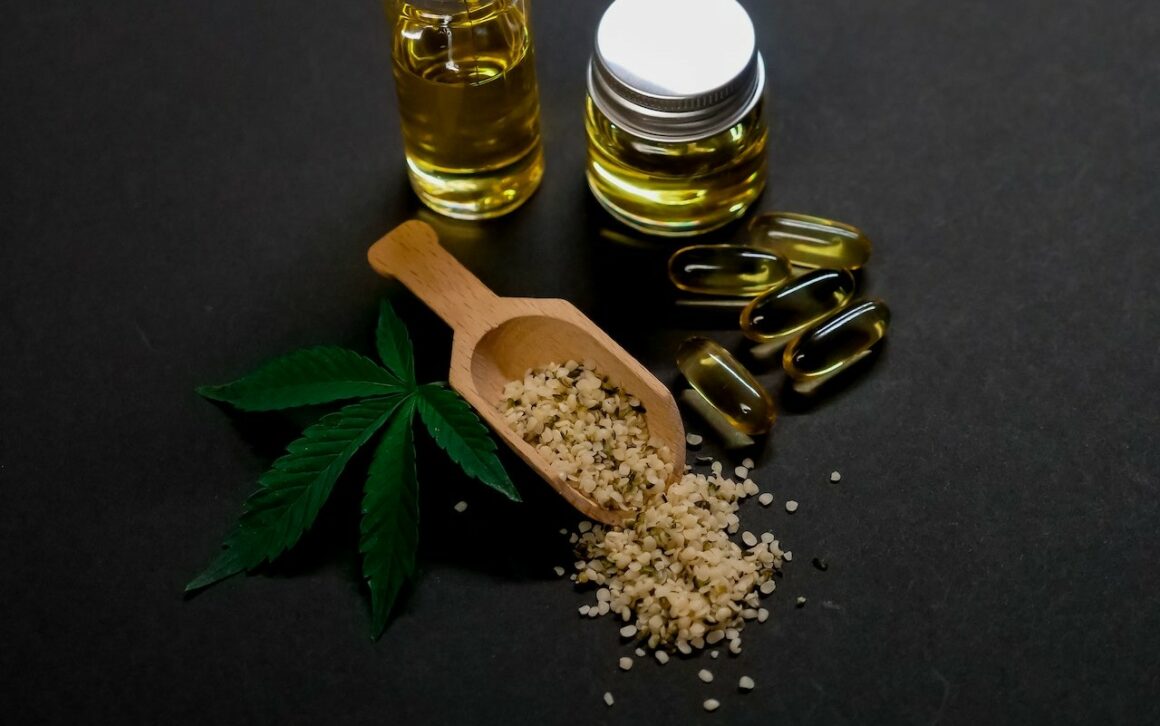Hemp protein – ingredients, effect & use
- Posted on
- 7 minute read
- Christin Uthoff
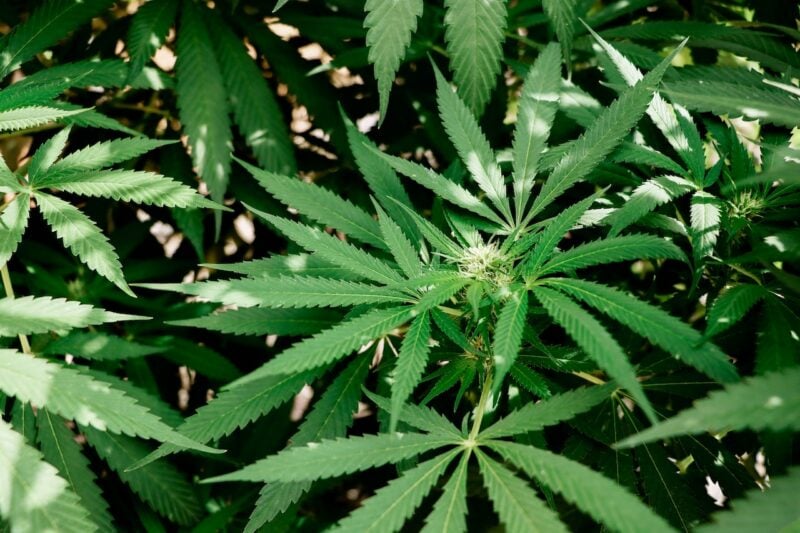
With the hemp plant many still associate primarily mind-expanding intoxicants. But the versatile plant can do much more: Hemp seed, hemp oil, hemp protein and many other delicious products have long conquered the supermarket shelves. But why don’t these foods get you high and what benefits can adding hemp seeds to your daily diet bring?
Everything you need to know about the ingredients, effects and uses of the various hemp products can be found here.
Hemp protein - ingredients, effect & use
The versatility of the hemp plant
Hemp is considered one of the oldest crops in the world. Seeds, leaves, flowers and fibers of the herbaceous plant are processed into a wide variety of products. From the fibers of the stems can Clothing or ropes are produced. The Seeds can be eaten pure or used for the production of hemp oil. In addition essential oils produced from the hemp plant. Hashish and marijuana are obtained from the leaves and flowers of the hemp plant. The legalization of these narcotic drugs is being discussed in many countries.
Do foods with hemp make you high?
Leaves and flowers of the hemp plant contain so-called cannabinoids. These include among others Tetrahydrocannabinol (THC) and cannabidiol (CBD). THC in particular can influence the psyche and have an intoxicating effect. The Seeds of the hemp plant, which can be consumed pure or processed into hemp oil, hemp protein powder and other foods, naturally contain no psychoactive substances. Only the contact of the seeds with flowers or leaves, for example during harvest, can lead to a contamination of the seeds lead.
In Germany and the entire EU, components of the cannabis plant may only be sold if they originate from commercial hemp plants and the THC content does not exceed 0.2. Commercial hemp plants have been bred to generally have lower THC content. Hemp with higher THC content may not be grown in the EU.
The Federal Institute for Risk Assessment (BfR) points out, however, that the consumption of hemp oil with high consumption of hemp oil with high THC content, the reference values of the European Food Safety Authority (EFSA) could be exceeded.. Children in particular should avoid this potential risk, as too much THC could more quickly affect the central nervous system as well as the cardiovascular system due to their low body weight.
May hemp products be sold as food?
Mainly, we can find food products on the supermarket shelves that contain hemp seeds or the protein or oil derived from hemp seeds. Since hemp seeds naturally do not contain THC, they may be sold as food products. However, there are still always Product recallsThe oils contain more THC than the guidelines allow. Since January 1, 2023, only a maximum of 3 mg THC/ kg hemp seed or 7.5 mg/ kg hemp oil be included. A Investigation by Öko-Test in October 2022
has shown, however, that five out of ten hemp oils contain more THC than declared.
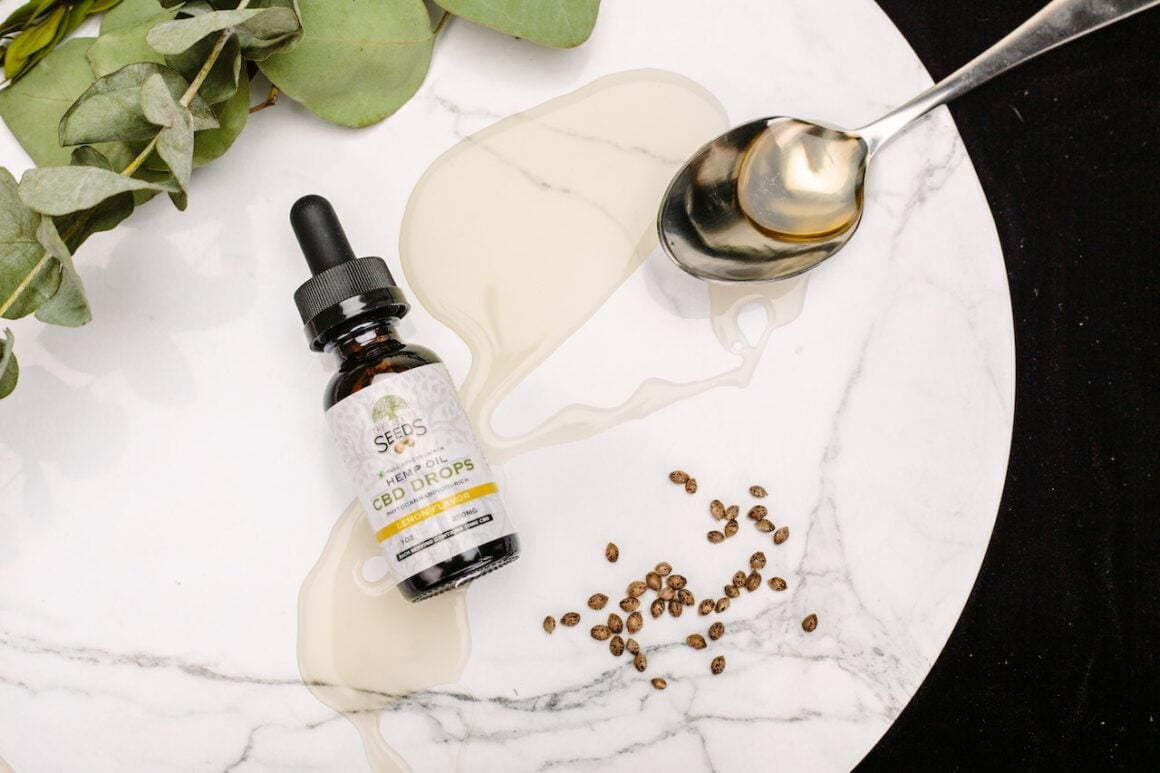
There are also more and more products that are enriched with CBD. are being added.
CBD, unlike THC, has no intoxicating effect and CBD-containing products are often said to have health-promoting effects. However, these are not scientifically proven; reliable data on dosage, side effects and safety are lacking. CBD products can also be contaminated with THC. Manufacturers of CBD products often circumvent legal requirements for food products by presenting the products as Aroma oils or cosmetics declare that are not intended for consumption. Nevertheless, it is advertised with health promises when taken orally.
Note: Hemp seeds and products made from them may be sold as food, but CBD-enriched products may not according to the current status. As long as the limits for THC are not exceeded, hemp seeds can provide you with valuable ingredients.
Hemp seeds: ideal omega-3 supplier
Hemp seeds contain similar to flax or chia seeds high-quality fats, proteins, vitamins, minerals and fiber. The amount of fiber varies depending on whether the hemp seeds are consumed with or without the hull. Indeed, most of the dietary fiber is present in the shell, which is why
unpeeled hemp seeds about 40 g dietary fiber per 100 g and hulled only about 4 g per 100 g. The hull is nutty in taste, hemp seeds without hull are softer and taste milder. Hemp seeds are already convincing in their pure form as a valuable Protein supplierbecause they contain about 20 to 30 percent proteins.
They also score with an unusually high proportion of of polyunsaturated fatty acids. The
Omega-6 fatty acid linoleic acid and the omega-3 fatty acid ⍺-linolenic acid are essential and must be supplied through the diet. Hemp seeds are a good source of ⍺-linolenic acid in particular. Last but not least, hemp seeds provide various B vitamins and vitamin E and the minerals calcium, magnesium and iron.
Hemp seeds give your Muesli a nutty note or your Smoothie an extra portion of omega-3 fatty acids. They also convince as Topping on savory dishes or as ingredient in baking.
Hemp oil: delicious all-rounder
By gently squeezing the small hemp seeds, the slightly nutty tasting Hemp oil won Just like the hemp seeds, the greenish-golden oil scores with its high proportion of unsaturated fatty acids. With about 60 % linoleic acid and 20 ⍺-linolenic acid it provides large amounts of the fatty acids essential for the body. This is particularly interesting for a vegan lifestyle, as long-chain omega-3 fatty acids are one of the potentially critical nutrients in vegan diet include. Omega-3 and omega-6 fatty acids should ideally be combined in a ratio of 5:1 can be recorded, but often the recording is more like 15-20:1.
Hemp oil can be used as an ingredient in salad dressing or in dips and smoothies be used. You should rather not use it for frying, but you can refine already cooked and still warm dishes with the slightly nutty oil.
Hemp protein: vegetable source of protein
Hemp protein is isolated from the seeds of the hemp plant, resulting in a fine, green protein powder. Depending on the manufacturer it contains about 50% protein. In contrast to Rice-,Soy– or pea protein relatively little, but hemp protein also scores with a high fiber content and high fiber content and unsaturated fatty acids.. Protein powder from hemp seeds provides you with all essential amino acids, Lysine however, is present in lower amounts and is therefore considered a limiting amino acid. To increase the biological value, i.e. the efficiency with which the body can utilize proteins, a combination with other protein sources is useful. For example, the biological value due to the combination with pea protein can be increased.
Hemp protein, like any other protein powder, can be added to Shakes and Smoothies be stirred in. Mix for this purpose about 20 g hemp protein with 150 to 200 ml water or plant drink and add banana, berries or other fruit if desired. The green color also makes hemp protein ideal for green smoothies and gives them a delicious nutty note. Hemp protein can also for baking and gives an extra nutritional kick to crispy cookies or juicy brownies.
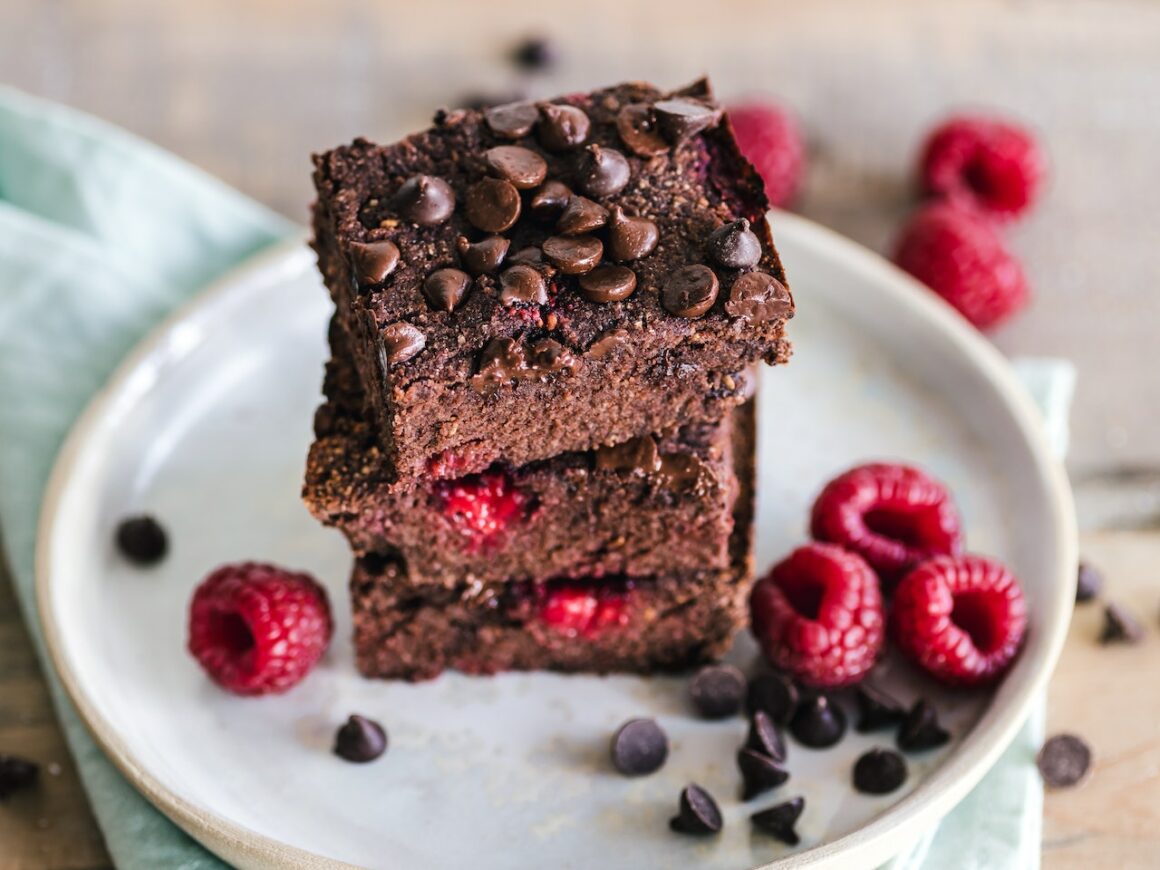
Health effect of food from hemp
Numerous advertisements promise beneficial effects on health of hemp seeds and products made from them. They are said to contribute to muscle regeneration, help with weight loss or lower cholesterol levels as well as blood pressure. But be careful: There is no scientific evidence for this! Thus, the EU has not allowed any statements about the health effect. With regard to the nutritional values, however, statements may be made depending on the product. These could be, for example: “high fiber content,” “rich in polyunsaturated fatty acids,” “natural source of protein,” or “rich in omega-3 fatty acids”. These properties may be relevant for a complete diet.
For whom are foods from hemp suitable?
Hemp seeds, hemp oil and hemp protein are now widely used. But the product range is even wider: hemp spreads, bars with hemp, hemp chocolate, hemp flour or drinks with hemp can also be found on supermarket shelves. But for whom are foods from hemp suitable?
First of all, we should clarify for whom hemp products are not suitable:
Children and pregnant women should avoid hemp products as a precautionary measure Children and pregnant women should avoid hemp products as a precautionary measure or only consume them in small quantities, as health impairments are possible due to falsely high THC contents.
On the one hand, people who practice competitive sports can benefit from the ingredients of the numerous hemp products, but they should keep in mind that the consumption of hemp products may lead to the detection of banned cannabinoids in the urine. can lead.
Apart from these groups of people, however, hemp products can be a valuable source of protein, fiber and omega-3 fatty acids. and complement the daily menu in a variety of ways. Less processed products such as hemp seeds, hemp oil or hemp protein should be preferred to bars, chocolate and co. as these often also contain large amounts of sugar or additives. If in doubt, a look at the list of ingredients will help.
Hemp protein is a plant-based protein source that can provide relief, especially for people with increased protein needs. It is also lactose- and gluten-free and suitable for people with a soy allergy.

Christin Uthoff
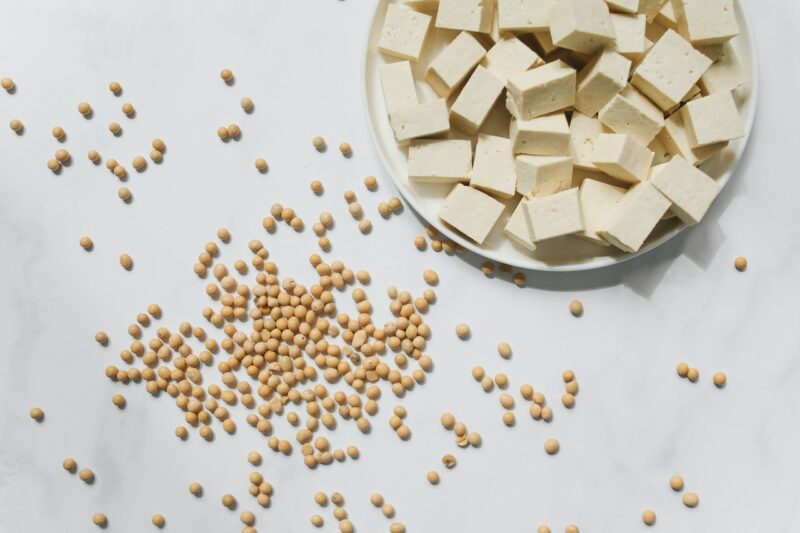
Soy – High-quality protein supplier or risky for health?
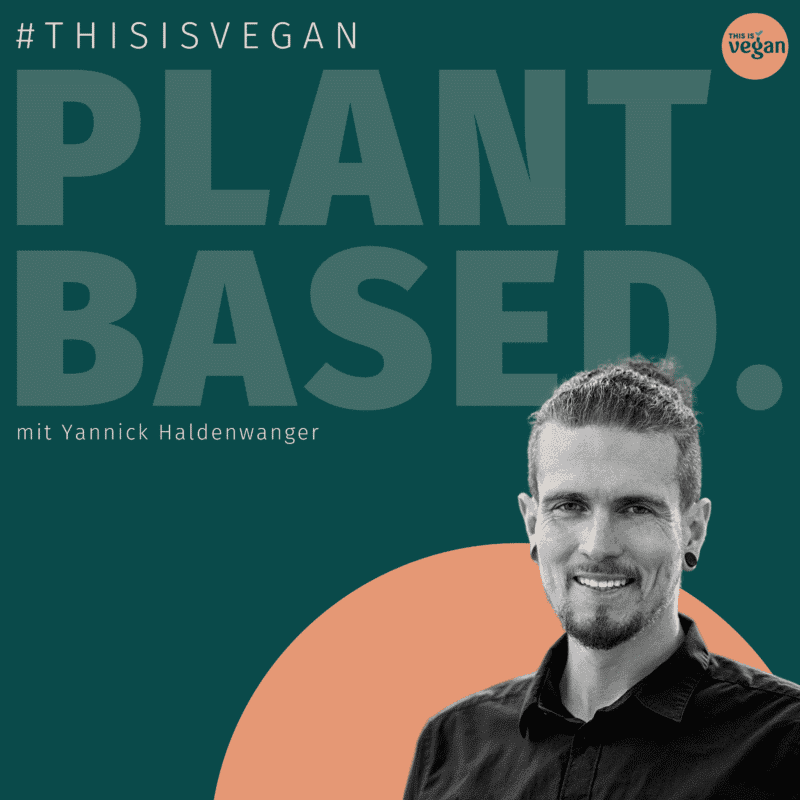
Podcast
Nächster Artikel
Yes, You Can Build Muscle on a Vegan Diet
- Posted on
- Trinity Sparke
What is beta-alanine? All about effect & dosage
- Posted on
- Christin Uthoff
Rice protein – facts about the underestimated vegan protein source
- Posted on
- Christin Uthoff
Vegan sports nutrition – How a good protein supply succeeds
- Posted on
- Christin Uthoff
Is maltodextrin vegan? All about effect & origin
- Posted on
- Christin Uthoff
From burnout to successful food blogger – Stina Spiegelberg on plant-based culinary arts
- Posted on
- Yannick
Easter vegan: everything for an animal-friendly Easter brunch
- Posted on
- Anna Sebestova
Can I eat this? – Animal ingredients are hidden behind these ingredients
- Posted on
- Julia Kein


